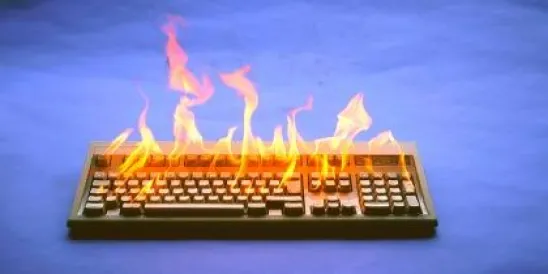In a case that attracted significant amici attention, the U.S. Court of Appeals for the Second Circuit, invoking the copyright law principal of preemption, vacated an injunction against an internet news service that was based on a tort claim of misappropriation. Barclays Capital, et al. v. TheFlyOnTheWall.com, Case No. 10-1372 (2d Cir. June 20, 2011) (Sack, J.) (Raggi, J., concurring).
The FlyOnTheWall.com (Fly) operates a subscription-based electronic news service that compiles security firms’ stock recommendations. Fly tries to obtain and release recommendations as soon as they are released by the security firms to clients. The plaintiffs (a group of security brokerage firms) sued Fly, alleging that Fly’s republication of their recommendations violated copyright law and was also a misappropriation under New York tort law.
A district court entered a judgment for the plaintiffs, concluding Fly had infringed the plaintiffs’ copyrights in their research reports, as well as that by collecting and disseminating to its own subscribers the recommendations contained in the plaintiffs’ reports, Fly committed “hot news” misappropriation under New York tort law. The district court ordered Fly to pay statutory damages, prejudgment interest and attorneys’ fees. It also permanently enjoined Fly from “further infringement of any portion of the copyrighted elements of any research reports generated by” the plaintiffs and from “dissemination of the [plaintiff’s] recommendations until one half hour after the opening of the New York Stock Exchange or 10:00 a.m., whichever is later.” Fly appealed.
Under 2d Circuit precedent, e.g., NBA v. Motorola (1997), a plaintiff bringing a “hot news” state tort claim has to demonstrate the following in order to survive federal copyright law preemption and succeed on the merits: the plaintiff was generating or gathering information at a cost; the information was time-sensitive; the defendant’s use of the information was free-riding on the plaintiff’s efforts; the defendant was in direct competition with a product or service offered by the plaintiff; and the ability of the defendant to continue free-riding would “so reduce the incentive to produce the product or service that its existence or quality would be substantially threatened.” Applying this five-part test, the district court ruled in favor of plaintiffs.
The 2d Circuit lifted the injunction, holding that the plaintiffs “hot news” claim was preempted by federal copyright law. The court explained that although NBA was still good law, the five-part test was more descriptive than binding. Rather, the court concluded that “applying NBA and copyright preemption principles to the facts of this case, the [plaintiffs’] claim for hot news misappropriation fails.” The court reasoned that Barclays’ reports fell within the subject matter and scope of the Copyright Act and that Fly was not “free-riding” because it was essentially reporting the underlying news that plaintiffs had made various recommendations about particular investments. “The [plaintiffs] are making the news; Fly is breaking it,” the 2d Circuit explained: “[a] Firm’s ability to make news – by issuing a recommendation that is likely to affect the market price of a security – does not give rise to a right for it to control who breaks that news and how.” Rather, the 2d Circuit explained that the so-called NBA preemption exception was narrow and that the focus is and must remain on the importance of maintaining the uniform nationwide scheme that the Copyright Act.




 />i
/>i

